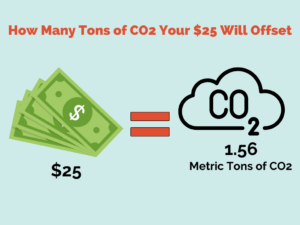SOLAR 2024 will be a net zero-emissions event! ASES will be achieving this by minimizing direct conference emissions in every area possible. For the remaining emissions, ASES will purchase carbon offsets and renewable energy credits (RECs). Along with this, we are providing an opportunity for attendees to offset their carbon emissions for an additional $25 when they register for the conference.

Per Sustainable Travel International, $25 will offset approximately 1.56 MT of CO2.
ASES encourages attendees to reduce their personal carbon footprint as much as reasonably possible. We’ve also put together some suggestions below to assist you.
Steps ASES Is Taking to Ensure SOLAR 2024 is 100% Net Zero-Emissions
ASES Net Zero Emissions Definition
ASES is thrilled to announce that SOLAR 2024 will be a net zero emissions event! According to the EPA, net zero is about consuming only as much energy as is produced. ASES is taking all reasonable steps to minimize the amount of greenhouse gases (GHGs) released from producing electricity, food, and other resources used during this event. While it is so important to conserve, it is also critical that energy demands are met with renewable energy. Therefore, whenever we cannot utilize carbon-neutral sources, we will offset the GHGs resulting from the conference by purchasing RECs (Renewable Energy Credits) and carbon offsets, which in turn will fund local mitigation projects. The RECs and offsets are needed to reduce the emissions associated with energy sourced from fossil fuels rather than renewable energy sources. In addition to achieving net zero emissions, we are taking steps to minimize our use of resources such as water, paper, land, and extracted materials. When we must use these resources, we will do so responsibly and sustainably.
We encourage you to join us in making this conference a net zero event by offsetting your travel-related emissions and using carpooling or public transit whenever possible.
Attendees’ Emissions & Reduction Suggestions
Air Travel
If one has to take a flight, suggest taking a direct flight instead of multiple flights with layovers. ASES recommends flying with an airline that offers carbon offsetting. You can also offset your travel emissions using Sustainable Travel International (a Treehugger Best Carbon Offset Programs of 2024 pick).
United Airlines – Eco Skies Alliance
United Airlines believes in improving the future of flight sustainability and has invested in becoming 100% green energy by 2050. In 2021 they launched their Eco Skies Alliance program to help fund the use of SAF (Sustainable Aviation Fuel) and bring global partners together to lower emissions. They have since been able to operate a flight only using SAF. United is also part of the Bipartisan Policy Center’s Net Zero Business Alliance (NZBA) which helps industries fight climate change.
JetBlue
JetBlue has partnered with Carbonfund.org, which works on offsetting carbon emissions through projects all over the world. To date, this has saved over 2.6 billion pounds of CO2 emissions.
Southwest
Southwest has a good incentive program for carbon offsets. They will match every dollar you spend, offsetting carbon emissions, and will also give you ten rapid reward points per $1 spent up to 500. Southwest offsets its carbon emissions through a variety of projects fighting climate change, such as The Guatemalan Conservation Coast Project, which works on nature conservation and prevention of deforestation with the local population, and the Parque Eolico Maldonado Project, which is a wind farm in Uruguay.
American Airlines
American Airlines partnered with Cool Effect in 2020. Cool Effect is a non-profit organization that works to provide consumers options for offsetting carbon emissions through projects that are verified to be reducing global emissions.
Carbon Offsetting Program – Terrapass
Hydrating During the Conference
ASES encourages everyone to bring their own reusable water bottles. There will be water fountains at the University Student Center at George Washington University for people to refill! Each year, 50 billion single-use water bottles are sold in the U.S., and unfortunately a large percentage of them end up either in landfills or added to the 5.25 trillion plastic items that are already in our oceans.
Caffeinating During the Conference
Get caffeinated in a sustainable way! We encourage you to bring a reusable coffee cup to the conference, as we do not want to increase our waste with single-use coffee cups. By having a reusable coffee cup, you are reducing the number of trees being cut down, the amount of energy wasted, and the gallons of water wasted.
